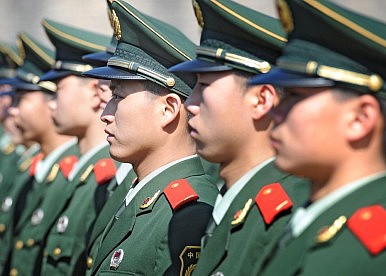Last Minute

- Conflict and Alliance: The US and China: A Centennial Dance: A Century of Relationship from 1900 to 2024
- CHINA RELATIONSEAST TURKESTAN PROBLEM AND TURKEY
- FRONTLINE China Undercover
- Elimination of “Uyghur Counter-Revolutionary Officials” in Academic Fields—Exact Quotes Translated from a Mandarin Audio File
- In Push for Trade Deal, Trump Administration Shelves Sanctions Over China’s Crackdown on Uighurs
- Dalai Lama’s 60th Anniversary Symposium: İlshat Hassan speech in English and Chinese
- Uyghur Detainees from Xinjiang ‘Placed in Nearly Every Prison’ in Shandong Province
- Shahrezad Ghayrat, Unrepresented Women
- Uighur Americans Speak Against China’s Internment Camps. Their Relatives Disappear.
- Rozinisa: The true story of the Uyghur girls in the prison

-

Conflict and Alliance: The US and China: A Centennial Dance: A Century of Relationship from 1900 to 2024
-

CHINA RELATIONSEAST TURKESTAN PROBLEM AND TURKEY
-

FRONTLINE China Undercover
-

Elimination of “Uyghur Counter-Revolutionary Officials” in Academic Fields—Exact Quotes Translated from a Mandarin Audio File
-

In Push for Trade Deal, Trump Administration Shelves Sanctions Over China’s Crackdown on Uighurs
-

Dalai Lama’s 60th Anniversary Symposium: İlshat Hassan speech in English and Chinese
Is the Chinese Military Weaker Than We Think?
Today, the U.S.-China Economic and Security Review Commission (USCC) published an assessment on the weaknesses of the China’s People’s Liberation Army (PLA). While the report, compiled by the RAND National Security Research Division (NSRD), points out that “the PLA’s capabilities have improved dramatically,” it also notes “potentially serious weaknesses” that could “limit [the PLA’s] ability to successfully conduct the information-centric, integrated joint operations Chinese military strategists see as required to fight and win future wars.”
The authors divide Chinese military’s weaknesses into two broad categories: institutional and combat capabilities. Institutional problems arise from rampant corruption, outdated command structures, the quality of personnel, and lack of professionalism. The weakness in combat capabilities is due to “an incomplete military transformation,” which produced logistical weaknesses, insufficient strategic airlift capabilities, limited numbers of special-mission aircraft, and deficiencies in naval air defense and antisubmarine warfare. The paper also lists shortcomings in other domains such as space and cyberspace. In addition, China’s defense industry is also allegedly suffering from widespread corruption and is in the middle of a “transition from central planning to a more market-oriented system.”
Based on the authors’ study of more than 300 Chinese-language articles, numerous books, and other military publications, the reportnotes that the PLA is aware of its own shortcomings. Many Chinese military writers have in the last few years pointed out that the PLA appears incapable of conducting information-centric, integrated joint operations, which are required to fight and win future ”local wars under informatized conditions.”
The report is based on 16 assumptions by the authors, including that the preservation of the Communist Party is the state’s and military’s top priority; the PLA will continue to be dominant within the state structure; there will be no major change in the China-Russia relationship or Russia’s broad strategic orientation; and also no major technological surprises from the Chinese side that could upend the current military balance in the Asia-Pacific region.
Why is the study of the PLA’s weaknesses important? The report points out four reasons:
- First, assuming we can gain greater knowledge of what the PLA sees as its own shortcomings, this is likely to offer a useful guide to assessing the future direction of PLA modernization and reform.
- Second, studying PLA weaknesses may inform the U.S. approach to forging a military-to-military relationship with China that advances U.S. interests and contributes to regional security and stability.
- Third, understanding the PLA’s weaknesses, and its own assessment of them, can help to improve the ability of the United States and its allies and partners to deter China from using force or the threat of force to resolve disputes with its neighbors.
- Fourth, if deterrence fails, knowing the PLA’s weaknesses could help devise strategies for countering Chinese use of force.
The PLA weaknesses have been known to most analysts observing Chinese military trends. This report, however, constitutes the most updated publicly available military study on the subject and is worth reading in its entirety. It echoes George Orwell’s mantra: “To see what is in front of one’s nose needs a constant struggle.”
http://thediplomat.com/2015/02/is-the-chinese-military-weaker-than-we-think/
RELATED NEWS












